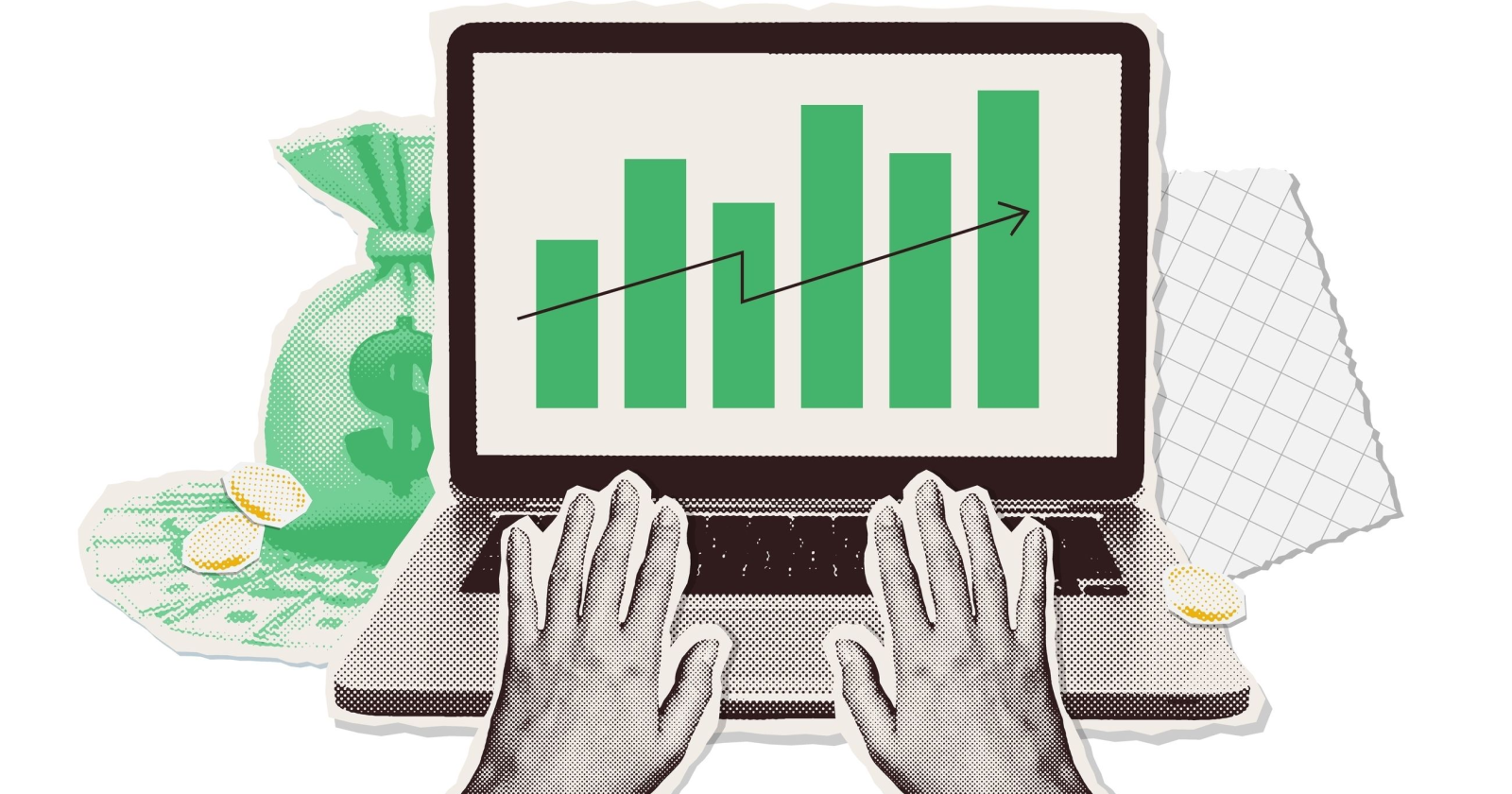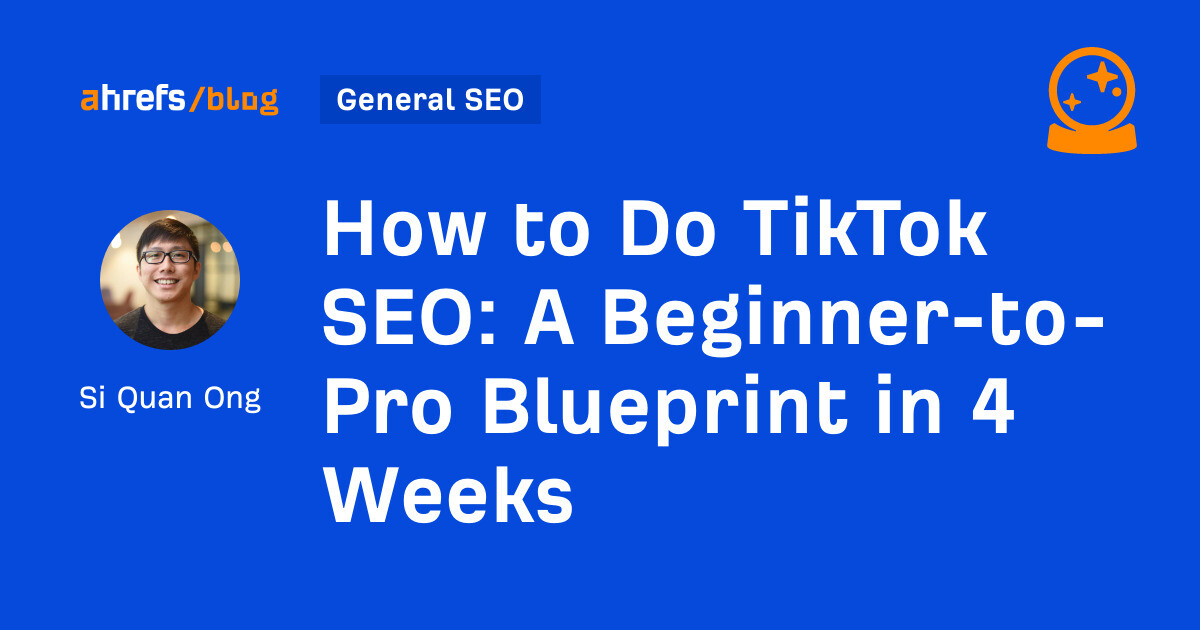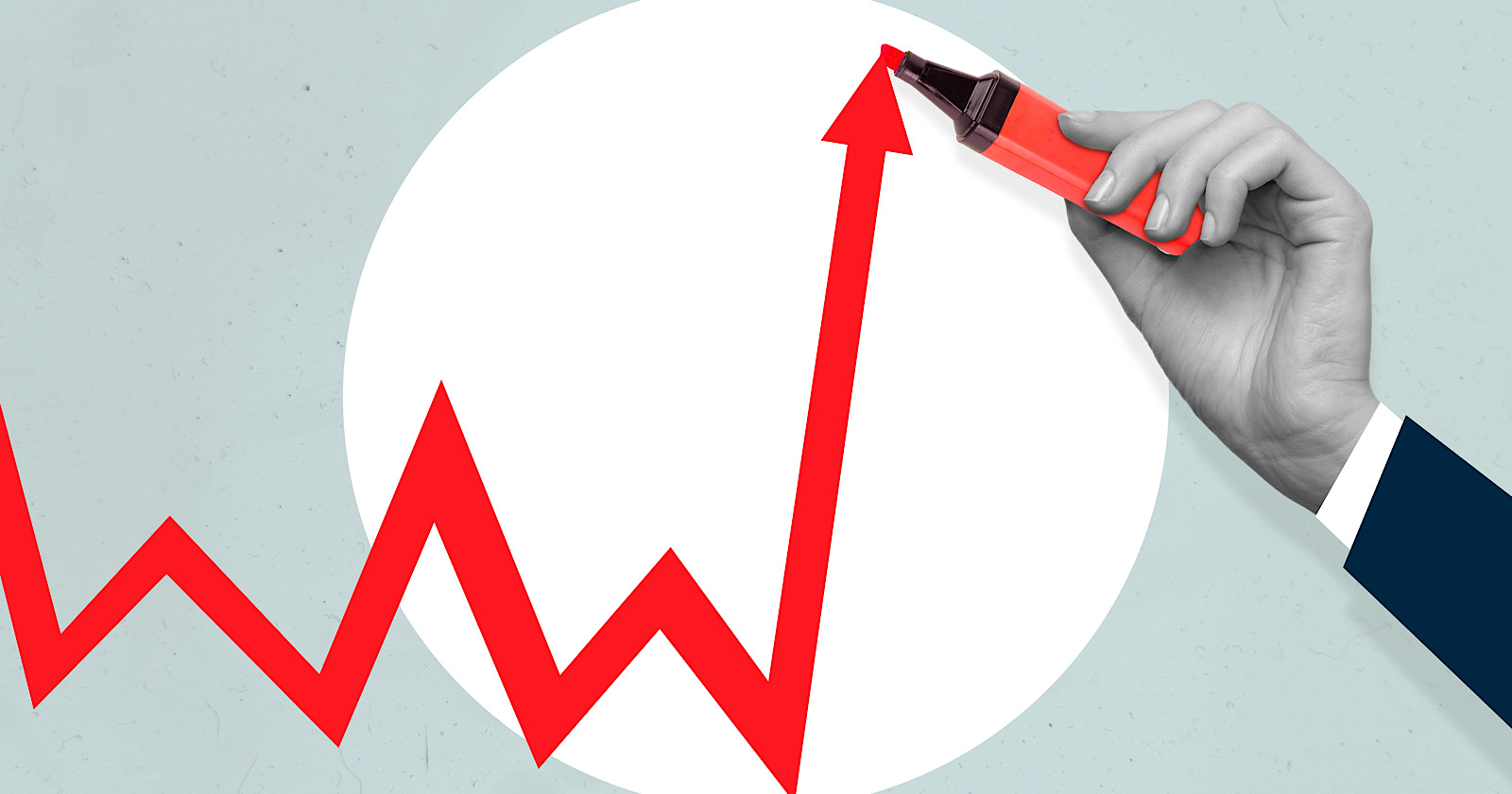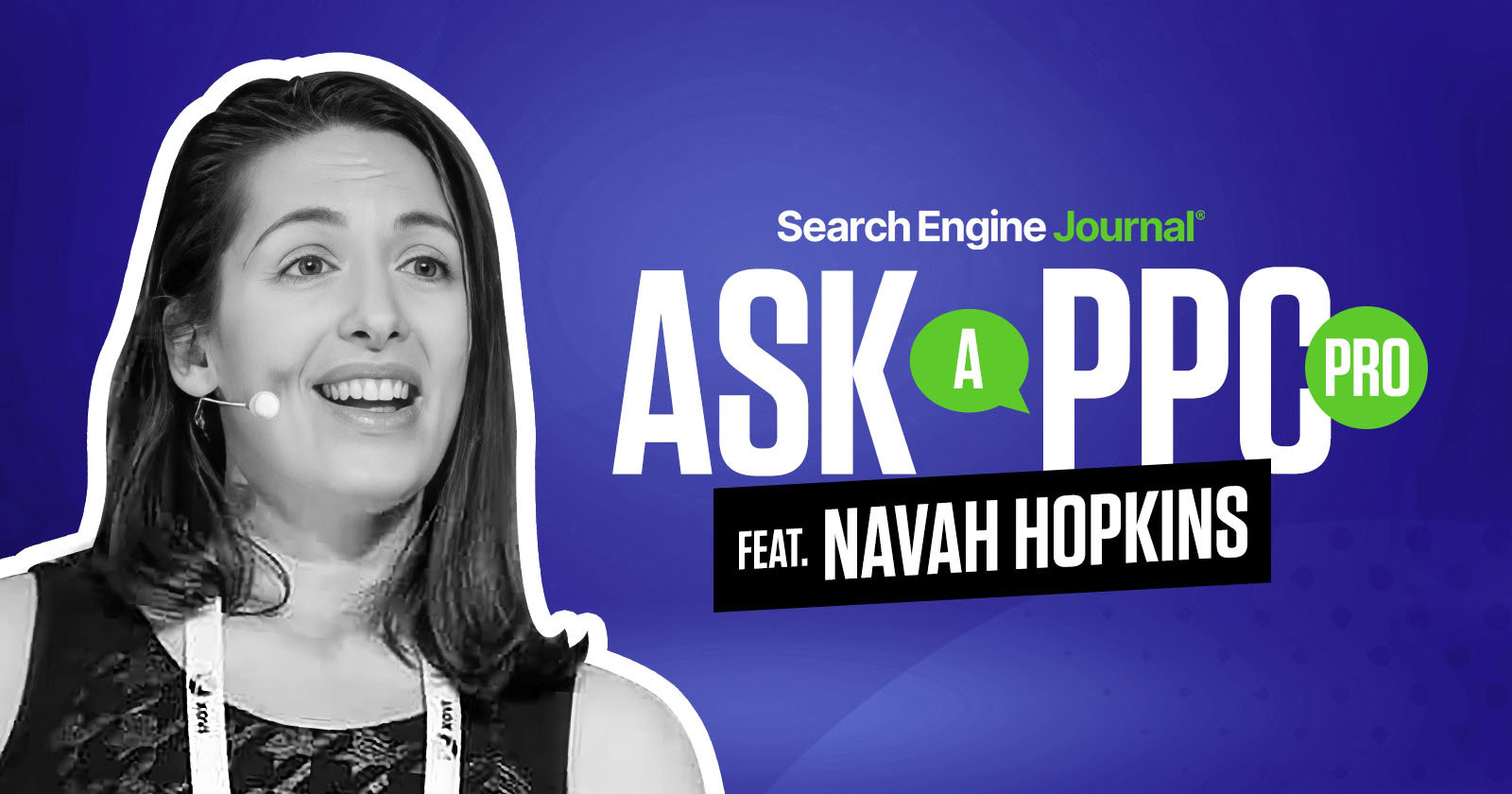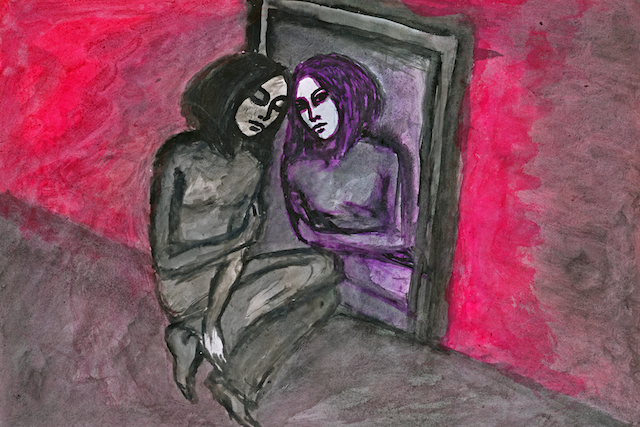ChatGPT Memory Update: Remembers Info Across All Chats via @sejournal, @MattGSouthern
ChatGPT's enhanced memory remembers your preferences across conversations, giving more personalized responses without repetition. The post ChatGPT Memory Update: Remembers Info Across All Chats appeared first on Search Engine Journal.
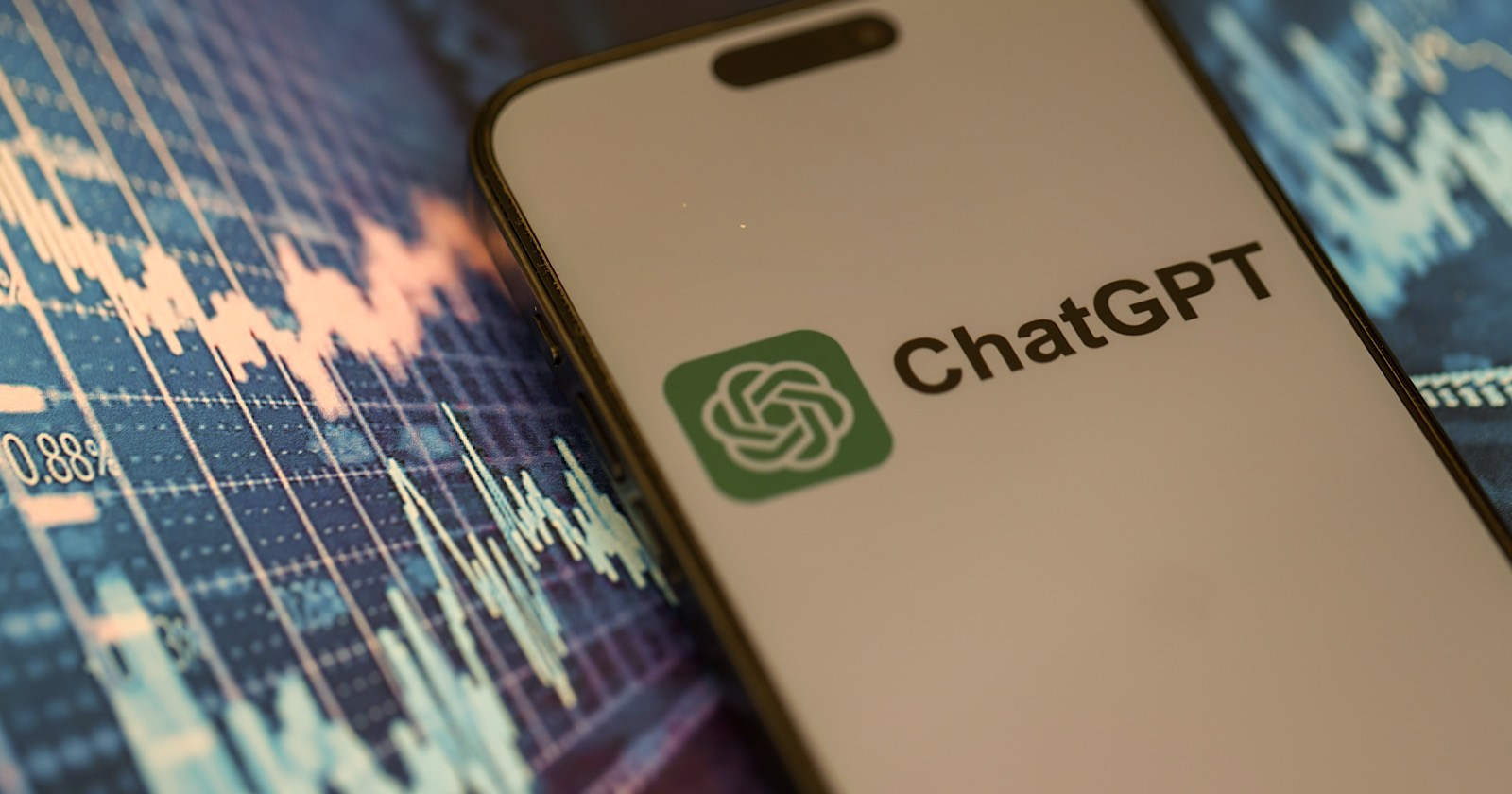
OpenAI has added better memory features to ChatGPT. Now, the AI can remember more from your past chats. This means you’ll get more personalized responses without needing to repeat yourself.
Sam Altman, CEO of OpenAI, made the announcement on X:
a few times a year i wake up early and can't fall back asleep because we are launching a new feature ive been so excited about for so long.
today is one of those days!
— Sam Altman (@sama) April 10, 2025
we have greatly improved memory in chatgpt–it can now reference all your past conversations!
this is a surprisingly great feature imo, and it points at something we are excited about: ai systems that get to know you over your life, and become extremely useful and personalized.
— Sam Altman (@sama) April 10, 2025
Starting today, memory in ChatGPT can now reference all of your past chats to provide more personalized responses, drawing on your preferences and interests to make it even more helpful for writing, getting advice, learning, and beyond. pic.twitter.com/s9BrWl94iY
— OpenAI (@OpenAI) April 10, 2025
How ChatGPT’s Improved Memory Works
The new memory system works in two main ways:
Saved Memories: These are specific details ChatGPT saves for later use. Examples include your preferences or instructions you want it to remember. Chat History Reference: This lets ChatGPT look back at your past conversations to give better answers, even if you didn’t specifically ask it to remember something.OpenAI explains:
“ChatGPT can now remember helpful information between conversations, making its responses more relevant and personalized. Whether you’re typing, speaking, or generating images in ChatGPT, it can recall details and preferences you’ve shared and use them to tailor its responses.”
This represents a significant expansion from the previous memory implementation, which was limited to just a handful of key facts that users often had to ask ChatGPT to remember explicitly.
You’ll know immediately if you’re using the version with improved memory if you log-in and see this message:
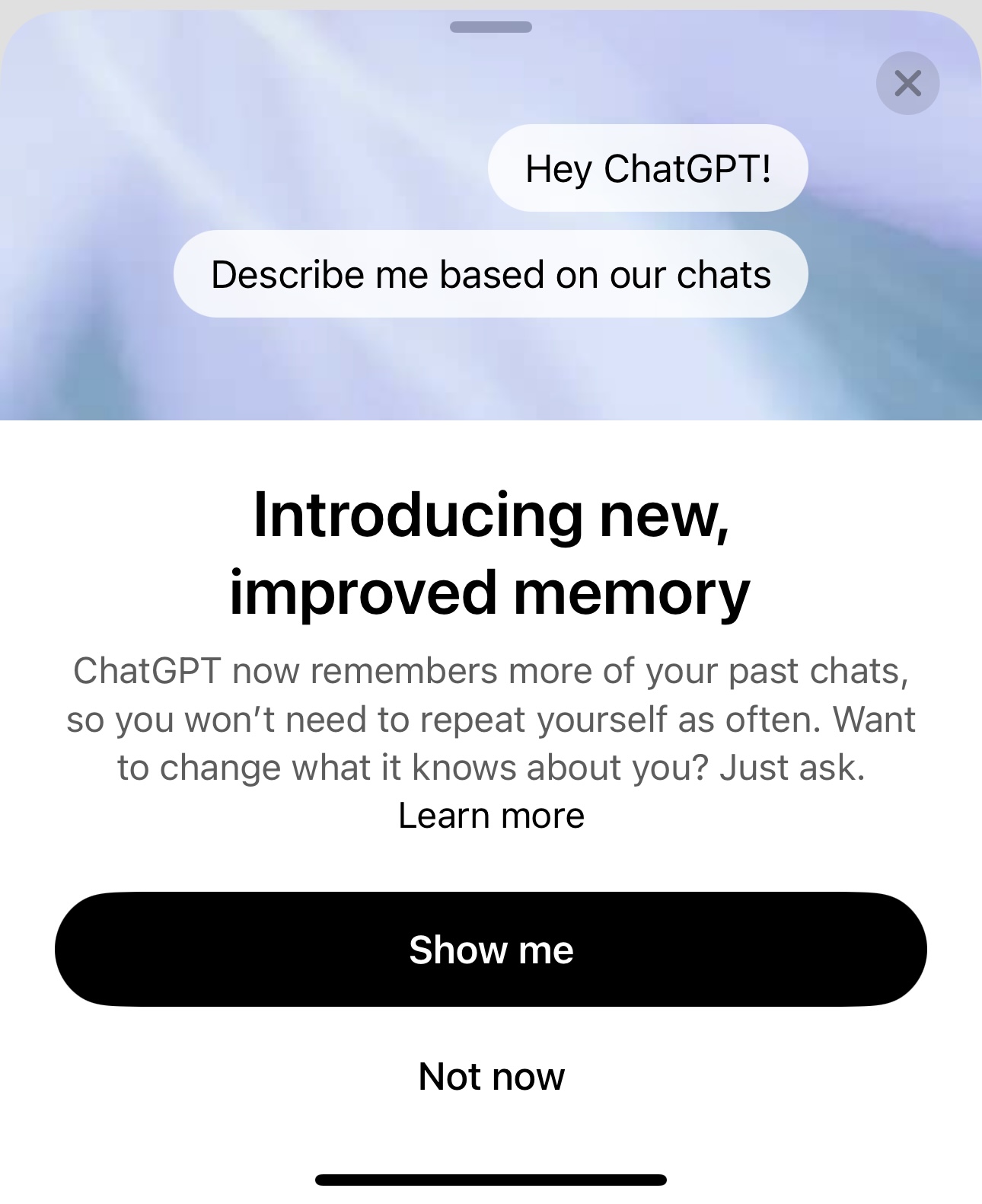 Screenshot from: ChatGPT, April 2025.
Screenshot from: ChatGPT, April 2025.
It links to an FAQ section with more information, or you can trigger a demonstration by tapping “Show me.”
You can prompt it with “Describe me based on all our chats” to see what it knows.
Here’s what it gave me. Based on my usage, it was accurate. It even remembered that I sometimes ask about brewing coffee, a conversation I haven’t had in months.
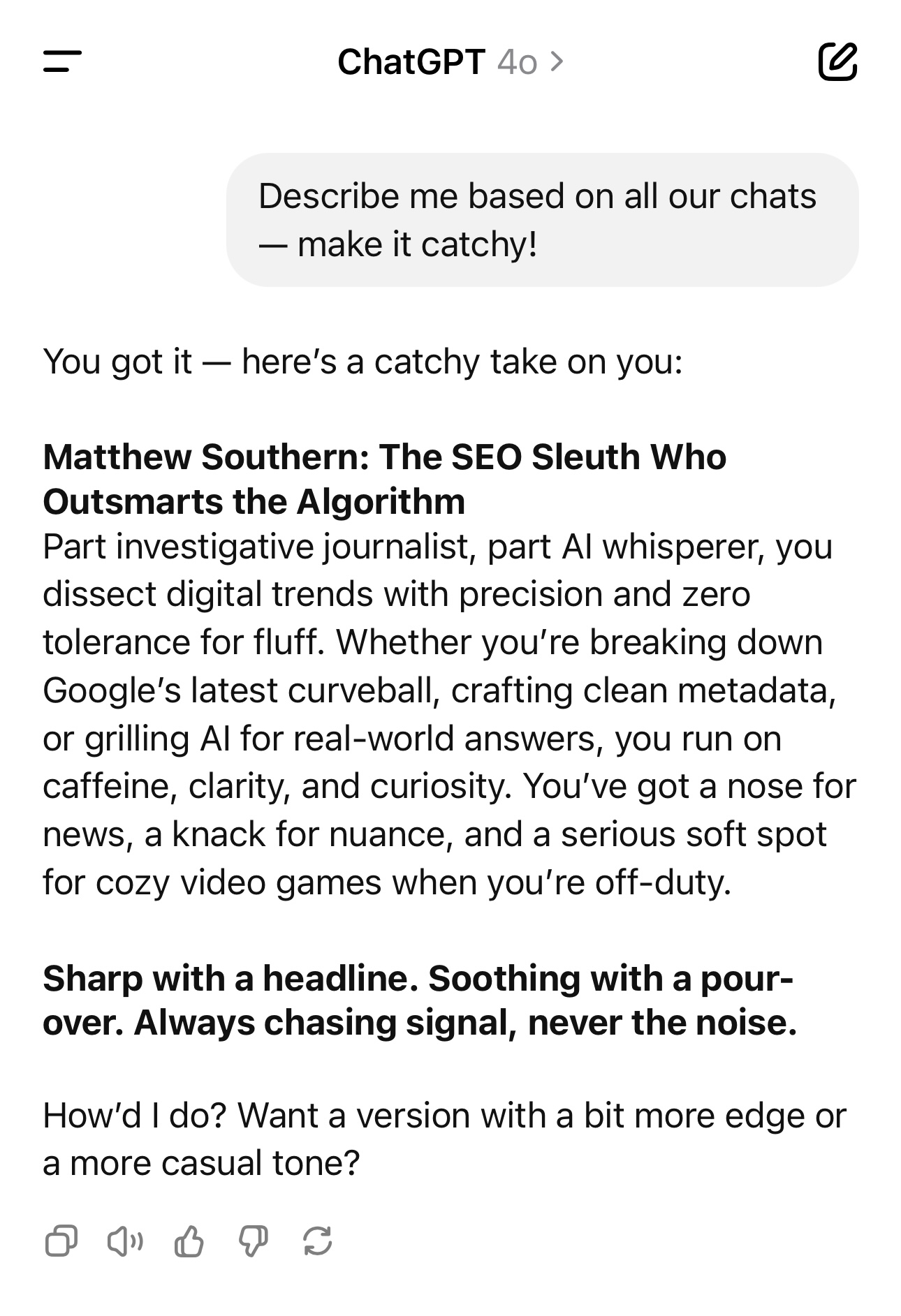 Screenshot from: ChatGPT, April 2025.
Screenshot from: ChatGPT, April 2025.
User Controls and Privacy Considerations
You have full control over what ChatGPT remembers:
You can turn off memory features in your settings You can review and delete specific memories You can start “Temporary Chats” that don’t use or create memories ChatGPT won’t automatically remember sensitive information like health details unless you ask it toOpenAI states:
“You’re in control of what ChatGPT remembers. You can delete individual memories, clear specific or all saved memories, or turn memory off entirely in your settings.”
Where there was once a single checkbox to disable or enable memory tracking, the interface now has two distinct options:
“Reference saved memories” (the original, limited memory feature), and “Reference chat history” (the new, comprehensive memory system)You can tell ChatGPT to remember things any time by saying something like “Remember that I’m vegetarian when you recommend recipes.”
Unlike the older saved memories feature, the information saved via the chat history memory feature is not accessible or tweakable. It’s either enabled or disabled.
It’s worth noting that even before this new memory feature, logs of conversations with ChatGPT were typically saved and stored on OpenAI servers. The difference now is that the chatbot can fully incorporate those past conversations into its responses.
Availability & Limitations
Right now, ChatGPT Plus and Pro subscribers are getting these new memory features. Free users can only use “Saved Memories,” not the “Chat History” feature.
These features aren’t available in European countries like the UK, Switzerland, and others. This is probably because of data privacy laws in those regions.
If you have ChatGPT Enterprise, workspace owners can control everyone’s memory features. Since February 2025, Enterprise and Education customers have 20% more memory capacity.
Implications for Marketers and SEO Professionals
For marketers and SEO pros, these memory improvements make ChatGPT much more useful:
Consistent Creations: ChatGPT remembers your brand voice and style across different sessions Easier SEO Work: It recalls past discussions about site structure, keywords, and algorithm updates Smoother Projects: You won’t need to repeat project details every time you start a new chatOpenAI notes:
“The more you use ChatGPT, the more useful it becomes. You’ll start to notice improvements over time as it builds a better understanding of what works best for you.”
What’s Next for AI Memory
OpenAI says memory features aren’t available for custom GPTs yet, but they’ll add them later. When that happens, GPT creators can enable memory for their custom GPTs.
Each GPT will have its own separate memory. Memories won’t be shared between different GPTs or with the main ChatGPT.
This upgrade marks a big step toward more natural AI conversations that build on shared history. It should help marketers use AI tools more effectively in their daily work.

 Lynk
Lynk 








![How To Stay Visible in AI Search [Webinar] via @sejournal, @lorenbaker](https://www.searchenginejournal.com/wp-content/uploads/2025/07/1-359.png)
